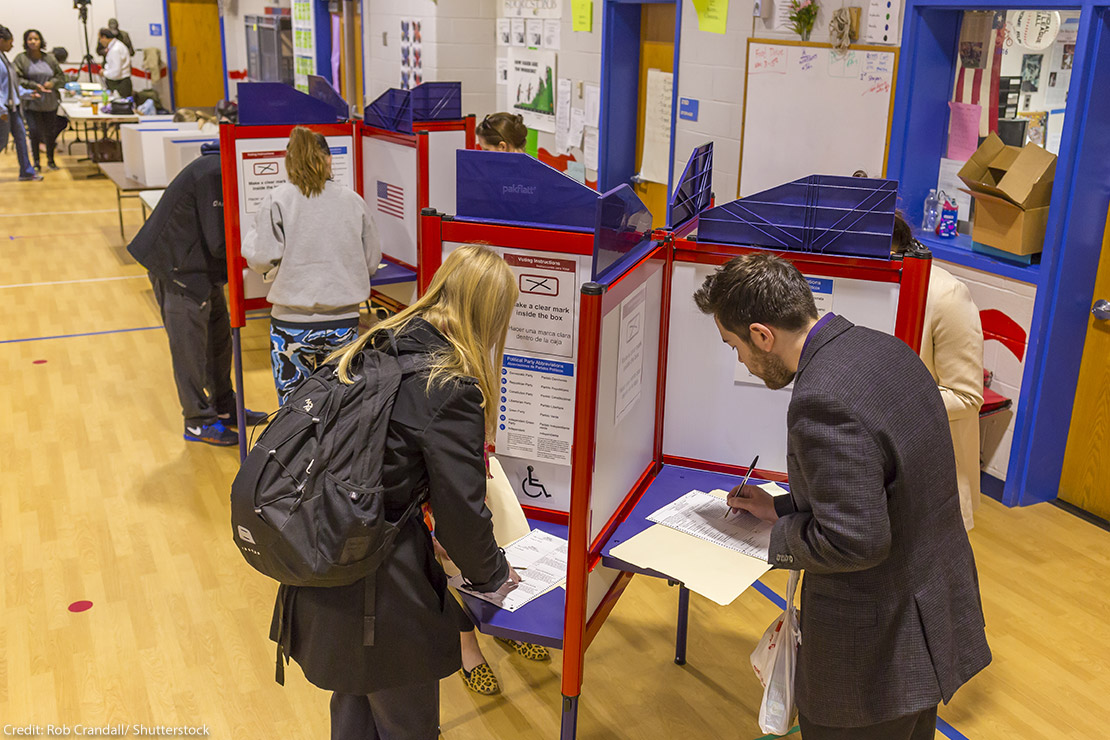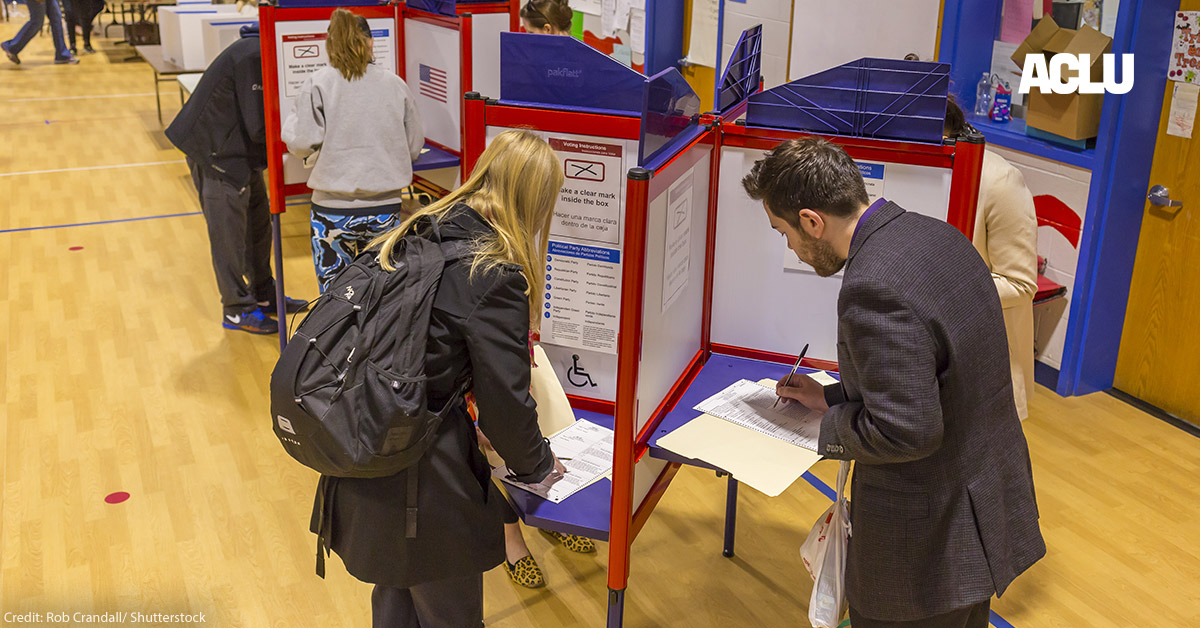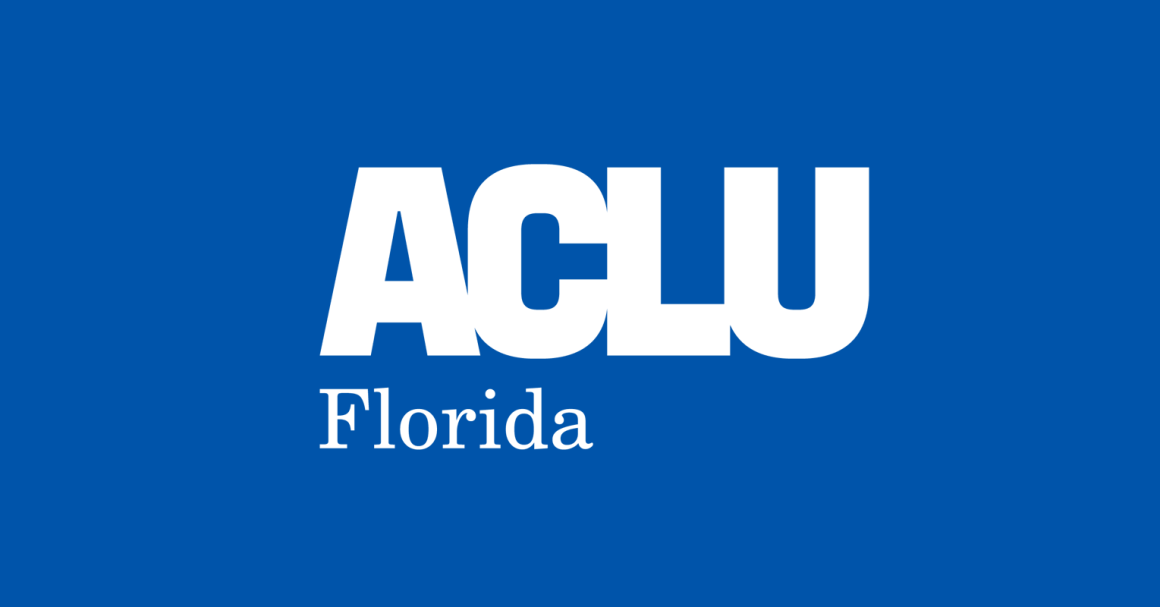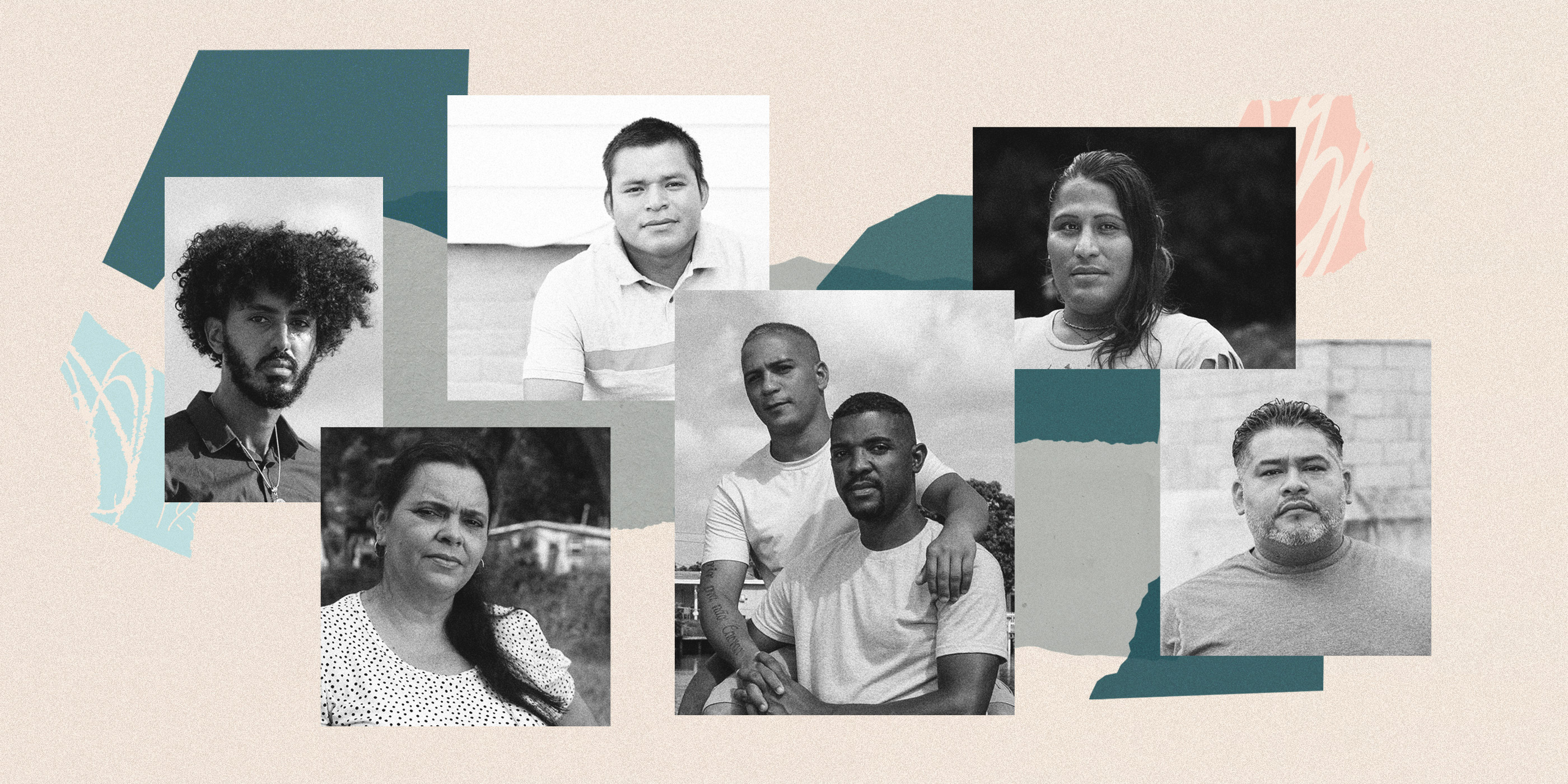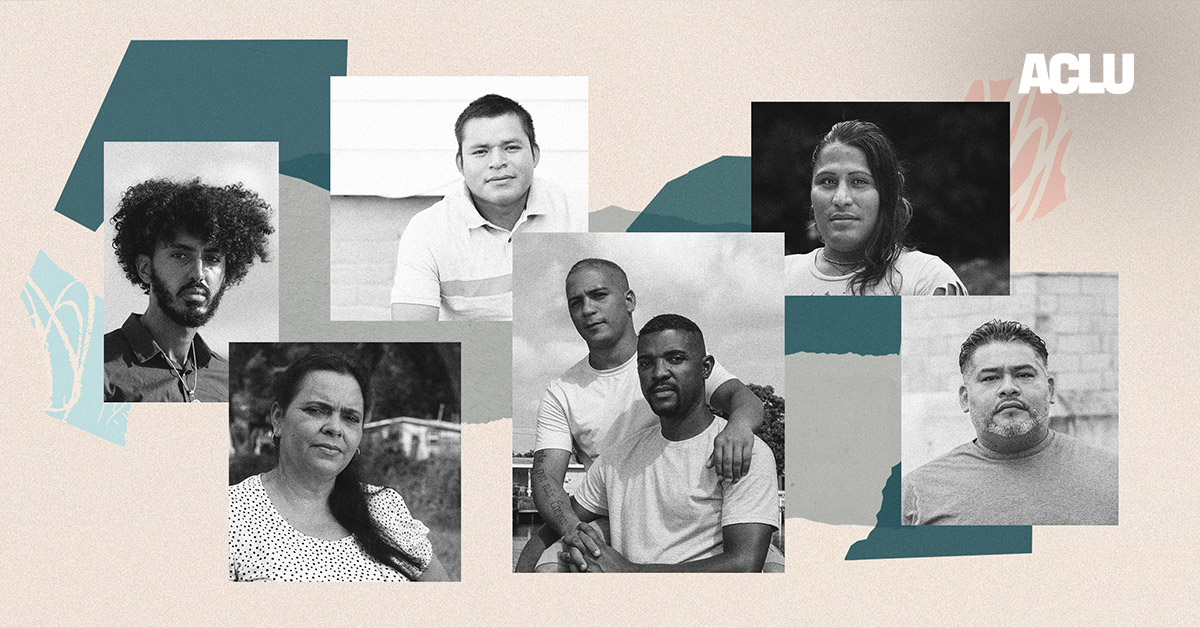This year, the presidential race has been all consuming. Less than 20 days before Election Day, practically everyone has something to say about the candidates. The ACLU has also spent time analyzing the policies and actions both Donald Trump and Kamala Harris might take if they win the White House. But, the presidential race isn’t the only important election on the ballot. That’s particularly true when it comes to abortion rights.
After Roe v. Wade was overturned, the right to abortion access was left up to each state, which allowed states to ban abortion, or allowed existing abortion bans to become law, in places where Roe previously protected our rights. So, while the outcome of the presidential race could have a serious impact on abortion rights nationally, state candidates and ballot initiatives will also have a major influence over abortion access in specific states.
The ACLU is nonpartisan — we don’t tell voters who to vote for — but part of our mandate is to inform voters about electoral issues. Here’s a quick snapshot of what’s at stake for your abortion rights at the ballot box.
Ballot Initiatives Can Still Create a Firewall to Protect Abortion Rights
Since Roe v. Wade was overturned, abortion rights have prevailed in every ballot measure that has been put before voters. At the ACLU, we are working to see this trend continue.
Starting in Missouri, we’re working with our partners at Missourians for Constitutional Freedom to pass Amendment 3. If passed, this amendment would end the state's total abortion ban, which is one of the strictest in the country and includes no exceptions for rape or incest. Amendment 3 would ensure decisions about Missourians’ reproductive health care — including abortion, birth control, and miscarriage care — can be made by patients and their health care providers without interference from politicians.
In Montana, the ACLU and our allies at Montanans Securing Reproductive Right are working to pass CI-128 to keep the government out of Montanans’ personal lives and secure reproductive rights, including the right to abortion, in the state constitution. In Colorado, Amendment 79, supported by the Coloradans for Protecting Reproductive Freedom, would also ensure people enrolled in state health insurance plans — like state employees and Medicaid enrollees — have coverage for abortion care just like everyone else. And in Nevada, working with Nevadans for Reproductive Freedom, we support Question 6, which would be a first step toward enshrining the right to reproductive freedom, including abortion, in the state’s constitution.
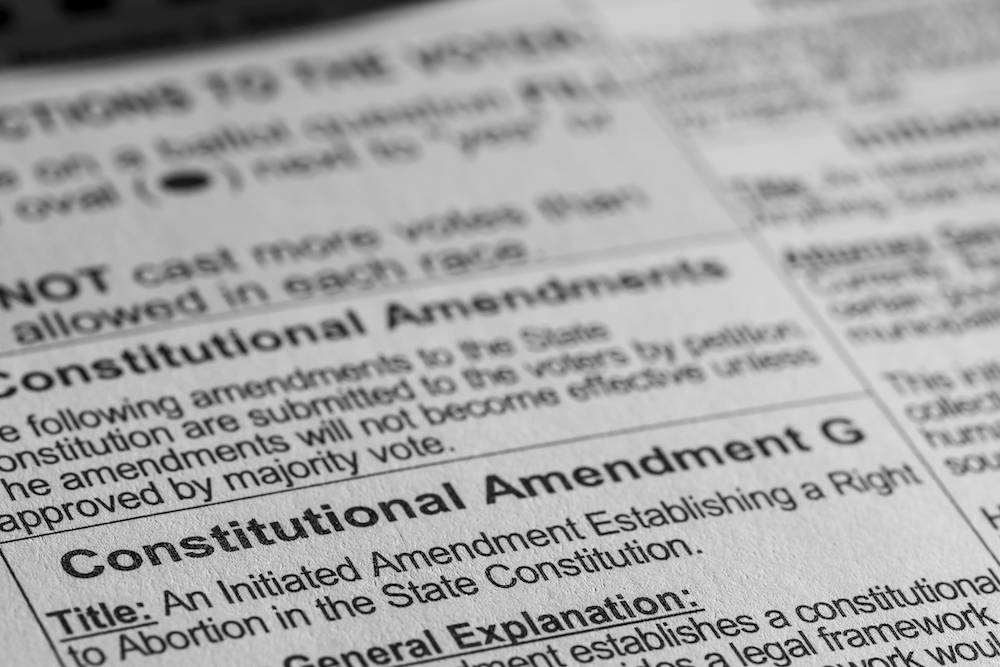
Credit: Lost_in_the_Midwest/ Shutterstock
In Arizona, we’re working with the Abortion Access coalition to establish a fundamental right to abortion and end the state’s dangerous abortion ban through Proposition 139. Back east, in Florida, we’re working with Floridians Protecting Freedom fighting to pass Amendment 4 to stop the state's devastating abortion ban and protect Floridians' freedom to make their own personal medical decisions without government interference.
If these ballot measures pass, nearly 45 million people will feel the impact of having abortion access restored or protected. But we’re not stopping there.
State Supreme Courts Play An Outsize Role in Abortion Rights
While ballot measures are an important part of our strategy, elected officials at all levels of government have a hand in either protecting or restricting abortion access. We’re engaging in key races that will impact this right. State supreme court justices can and often do find that state constitutions protect more rights than the U.S. Constitution, making them a powerful backstop against the attacks of radical, anti-abortion minorities. Even in states that have already passed ballot measures to protect abortion rights, like Michigan and Ohio, state supreme courts have a lot of power to interpret these measures.
With our Voter Education Fund, we’re focused on state supreme court races in Michigan and Montana where we’re raising awareness about the candidates’ abortion rights positions. We also have conducted voter education on reproductive rights in North Carolina’s state supreme court race.
State Legislatures Are Still Key in Protecting Abortion Rights
While some state legislatures have been heavily gerrymandered to prevent laws that actually represent the will of the people, state lawmakers can still be vital in blocking abortion bans from moving forward.
In Michigan, we're working in six state house district races to educate voters on reproductive rights in the legislature and protect the hard-won rights we secured for abortion access in 2022 using ballot measures. Also, in Wisconsin, we’re educating voters on abortion rights in six legislative races. In Montana and Kansas legislatures, our focus is building a larger pro-civil rights minority that can block bans. We and the ACLU Voter Education Fund are also working in important state legislative races in North Carolina and Georgia to educate on candidate positions in those races.
This election, we are working hard to make sure you’re able to protect your rights beyond just the presidential race. Now that you know what’s at stake this cycle, find out how you can get involved by visiting aclu.org/vote. There you’ll be able to find ways to volunteer, conversation guides to share with friends and family, graphics to share on social media and merchandise to get you excited for Election Day. See you at the polls!
Paid Pol. Adv. Paid for by American Civil Liberties Union, Inc., Anthony Romero Executive Director, 125 Broad St. New York, New York 10004, in coordination with Arizona for Abortion Access, Coloradans for Protecting Reproductive Freedom, Floridians Protecting Freedom, Montanans Securing Reproductive Rights, Nevadans for Reproductive Freedom, and authorized by Missourians for Constitutional Freedom. Registered agent: Anthony Romero.
Paid for by ACLU Voter Education Fund, 212-549-2500, not authorized by a candidate or candidate’s committee.
Date
Thursday, October 17, 2024 - 12:15pmFeatured image
